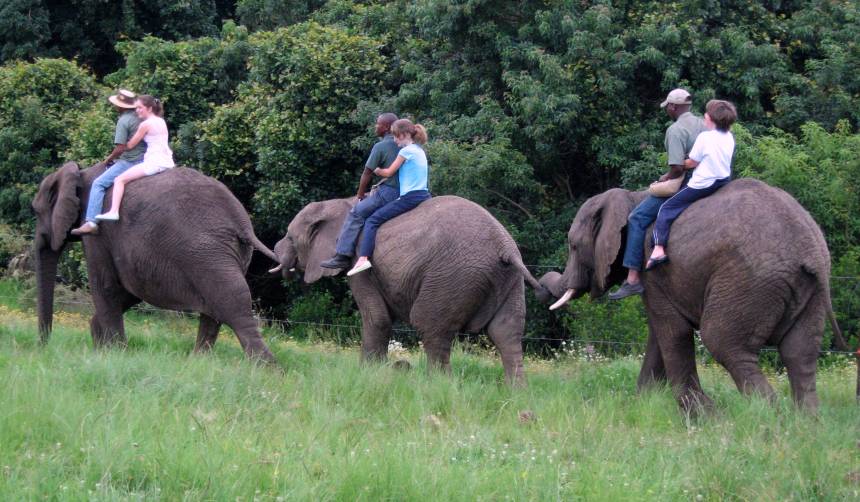The recently established animal rights group, Wildlife Rights is extremely concerned that transformation within the Animal Interaction Tourism sector is lagging.
This follows Cape Nature’s recent approval of Lamloch Safari Park Kleinmond, despite numerous objections regarding the introduction of elephants by owner, Craig Saunders. Approvals of this nature speak volumes of the lack of understanding of the implications of animal interaction tourism.
According to a newspaper report, Cape Nature rejected a Public Access to information Act (PAIA) request regarding the introduction of elephants into Lamloch. Wildlife Rights acknowledges that Cape Nature may have declined the PAIA request to protect 3rd Party Information.
These animal interaction “experiences” have far-reaching effects for all wildlife, but the ripple effect extends. The South African Institute of International Affairs (SAIIA) 2018 report cautioned that South Africa’s tourism brand value could potentially be negatively affected by as much as R54 billion loss in revenue over the next decade, if the Captive Lion Breeding Industry is allowed to continue.
Despite the continued headwinds South Africa’s economy is facing, Wildlife Rights realises that there will be no gain and only long-lasting adverse repercussion if unethical and irresponsible tourism is practiced for monetary gain.
It is important to note that not all wildlife encounters are unethical, but it is extremely important that governing bodies in South Africa help to establish solid ground rules to prevent unethical tourism taking root. Several Safari’s in the Eastern and Western Cape remain compliant and these run the risk of being painted with the same brush when non-compliant animal interaction “sanctuaries” are allowed to operate legally.
Saunders reportedly said that there will be no elephant “petting” at Lamloch, however a quick tour visit to the websites of his “Elephant Sanctuaries” in Hartebeespoort, Hazyview and The Crags, Plettenberg Bay, home to the proposed Lamloch elephants, shows images of members of the public standing next to the elephants; further images show visitors posing next to elephants with the elephants trunks in their hand, while other visitors walk alongside these majestic pachyderms.
Wildlife Rights applauds South African Tourism Services Association (SATSA) for recognising the need to toe the line with regards to ethical and responsible animal interaction tourism. During the 2018 annual SATSA Conference a panel discussion on Animal Interactions – How to Craft a Compliance Process – was held. In response to this Ian Michler, Consultant and Campaign Co-leader for Blood Lions expressed his scepticism and said: “Dealing with compliance only is not enough. This will allow many to continue with cruel and irresponsible practices under the veil of conservation or education.”
Additionally, SATSA together with BDO recently organised a consultative workshop on animal interaction and presented initial findings from their research. Following the workshop, a group known as The Coalition responded to SATSA and BDO.
In their response, The Coalition wrote: “SATSA and SA Tourism really need to convey that they are leading the charge to restore this consumer confidence, particularly around the topic of human entertainment involving captive bred wildlife for commercial gain. With global corporations such as TripAdvisor, Instagram and Expedia under pressure to stop promoting or selling animal interactions from tourists themselves should see this as further motivation for strict guidelines and accreditation. It is now more important than ever that Brand SA does not continue to be damaged by these matters.”
Wildlife Rights commends the public, National SPCAs (NSPCA), and a myriad of conservation bodies who spend their time fighting for the rights of wildlife, and ask that they all stand together to prevent yet-another so-called sanctuary to open its doors to the public with the sole purpose of profit for the owner.
Public objections and/or comment for the proposed Lamloch Safari Park can still be made up until 15 April and Wildlife Rights encourages the public to visit its website (www.wildlife-rights.com) and sign the online petition or send their objections to adel@dougjeff.co.za.


























